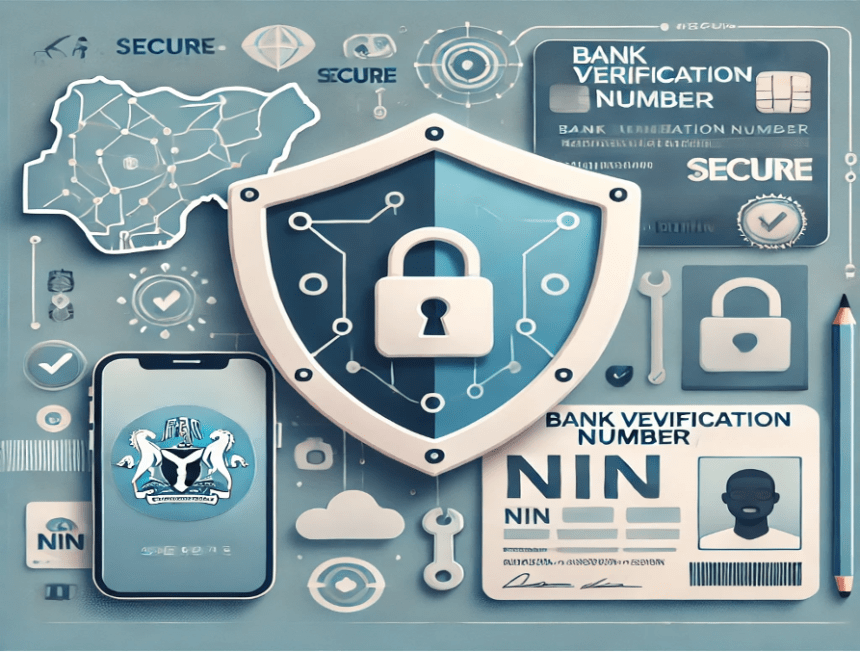In Nigeria’s increasingly digital world, identity theft is a growing concern. From online banking fraud to SIM swap scams, criminals are finding new ways to exploit personal information for financial gain. This can have devastating consequences for victims, leading to financial losses, damaged creditworthiness with local institutions, and significant distress. This article is a practical guide tailored for Nigerians, explaining common identity theft tactics prevalent in the country, the potential impact on your life, and crucial steps you can take to protect yourself. By understanding the specific risks and taking preventive measures, you can significantly reduce your vulnerability to this crime.
Table of Contents:
- Understanding Identity Theft
- Common Scams in Nigeria
- The Impact of Identity Theft
- Protecting Yourself: Practical Tips for Nigerians
- What to Do if You’re a Victim
Understanding Identity Theft:
Identity theft in Nigeria takes many forms, from traditional methods like stealing physical documents to more sophisticated online attacks. It involves the unauthorized acquisition and use of your personal information, such as your Bank Verification Number (BVN), National Identity Number (NIN), bank account details, or driver’s license information. The rise of mobile banking and online transactions has created new opportunities for criminals. It’s crucial to understand the local context of identity theft to effectively protect yourself. This article will focus on scams and issues specifically relevant to Nigeria.
Common Scams in Nigeria: Several scams are particularly prevalent in Nigeria:
- BVN and Bank Account Scams: Scammers often use phishing emails, SMS messages, or phone calls to trick people into revealing their BVN, bank account details, or ATM PINs. They may impersonate bank officials or offer fake promotions.
- SIM Swap Fraud: This involves criminals obtaining a new SIM card for your mobile number without your consent. They can then use this to access your bank accounts, online services, and other sensitive information linked to your phone number.
- Online Shopping Scams: Fake online stores or fraudulent advertisements on social media platforms can lure unsuspecting buyers into providing their payment information, which is then used for fraudulent purposes.
- Ponzi Schemes and Investment Scams: While not strictly identity theft, these scams often involve collecting personal information under false pretences, which can then be misused.
The Impact of Identity Theft: The consequences of identity theft can be severe:
- Loss of Funds: Fraudulent transactions can drain your bank accounts, leaving you financially vulnerable.
- Damage to Creditworthiness: Although Nigeria’s credit reporting system is still developing, fraudulent activity can affect your ability to obtain loans or access financial services in the future.
- Difficulty Accessing Government Services: If your NIN or other government-issued identification is compromised, it could create problems when accessing government services.
- Emotional Distress: Dealing with the aftermath of identity theft can be incredibly stressful and time-consuming.
Practical Tips on Protecting Yourself from identity theft
- Never share your BVN or ATM PIN with anyone: This remains crucial. Please be aware that banks never request for this information via unofficial channels. In 2023, several cases were reported where individuals received SMS messages claiming to be from their bank, stating that their accounts would be blocked unless they updated their BVN. Victims who provided their BVN and other details subsequently had their accounts emptied.
- Be wary of unsolicited calls or messages: This is especially important with the rise of sophisticated phishing and smishing attacks. There have been reports of scammers using spoofed phone numbers to impersonate officials from government agencies like the Federal Inland Revenue Service (FIRS) or even the Economic and Financial Crimes Commission (EFCC), attempting to obtain personal information or extort money.
- Register for NIN and link it to your SIM: This is a key government initiative aimed at improving identity verification. As of late 2024, the Nigerian government has continued to emphasize the importance of the NIN-SIM linkage, with ongoing efforts to ensure all SIM cards are linked to NINs. This exercise is designed to curb SIM swap fraud and other related crimes.
- Be cautious when shopping online: With the growth of e-commerce in Nigeria, online shopping scams are on the rise. Many Nigerians have fallen victim to fake online stores advertising heavily discounted products, particularly on social media platforms like Whatsapp, Instagram, Facebook and TikTok. These stores often disappear after receiving payments, leaving buyers with no recourse.
- Regularly check your bank statements and transaction history: This allows you to quickly identify any unauthorized activity. A Lagos resident noticed an unusual debit on their bank statement for an online purchase they didn’t make. By immediately contacting their bank, they were able to block their card and initiate an investigation, preventing further losses.
- Use strong passwords and enable two-factor authentication where possible: This is a fundamental security practice. Two-factor authentication (2FA) adds an extra layer of security by requiring a second form of verification, such as a one-time code sent to your phone, in addition to your password. This makes it much harder for hackers to access your accounts even if they obtain your password.
What to Do if You’re a Victim of identity theft
- Contact your bank immediately: This is the first and most crucial step. Several banks have publicized their quick response times to fraud reports, with some cases involving the reversal of fraudulent transactions within 24-48 hours when reported promptly.
- Report the incident to the police: Filing a police report is essential for official documentation and potential investigation. In a recent case reported by the EFCC, a man was convicted and sentenced to two years in prison for identity theft and impersonation. This highlights the seriousness with which these crimes are being taken by law enforcement.
- Contact your mobile network operator: This is crucial in cases of SIM swap fraud. Mobile network operators in Nigeria have implemented procedures to help customers recover their SIM cards after a SIM swap incident, often requiring proof of identity and ownership of the affected line.
- Consider contacting relevant regulatory bodies: Such as the Central Bank of Nigeria (CBN) or the National Identity Management Commission (NIMC), depending on the nature of the fraud. The CBN has issued several circulars and guidelines to banks on enhancing security measures and protecting customers from fraud, demonstrating their commitment to addressing this issue.
Don’t become a victim of identity theft. You have the power to protect yourself. By implementing the practical tips outlined in this article, you can take control of your personal information and safeguard your financial well-being. Remember, prevention is better than cure. Take action today to protect yourself from the damaging consequences of identity theft in Nigeria.
About the Author:
Onyedikachi Ugwu is a seasoned cybersecurity professional, mentor, speaker, and passionate writer dedicated to empowering individuals with the knowledge to navigate the digital world safely. By day, I serve as a Threat Detection and Response Analyst at NormCyber, where I leverage my expertise to combat online threats. In my spare time, I share my insights on various cybersecurity topics.
As a Social Engineering SME, I am well-versed in the tactics used by scammers to manipulate their victims. My goal is to equip readers with the tools to identify and avoid these deceptive schemes, helping them find genuine connections online.








